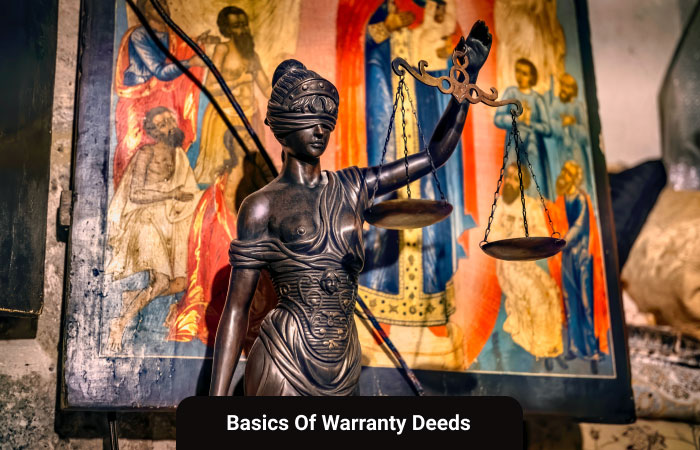
Are you in the process of selling or buying a residential real property? If yes, you should have heard of the general or special warranty deed. It is the best platform to help you understand what a special warranty deed is.
It is commonly used in the transfer of homes to the new homeowner and there is a broad range of warranties to protect the buyer. This article will be looking at a general warranty deed vs. a special warranty deed. You will discover that the level of protection that each of them offers to the buyer is different.
What Are Property Deeds?

Property deeds are legal documents that are used to transfer the interest of ownership in the real estate industry from one individual (grantor) to the other (grantee). Therefore, a deed has to identify the grantee and grantor and also provide a legal description of the real estate property.
The warranty deed is the most common type of deed that is used to transfer a residential property within the country. There are basically two types of warranty deeds which include the general and the special one. Hope you get to know the warranty deed definition and its basics.
The Basics Of Warranty Deeds

A warranty deed is a document that majorly carries out real estate transactions. Transfer of ownership of real estate property from one person to another is the basis of all real estate transactions. As we know from the previous section, a property goes from one party, called the grantor to the other one called a grantee. A warranty deed provides warranties about the property which is mentioned in the deed and is being transferred. Let us talk about the basic elements of a warranty deed.
Component 1
Like all legal document, a warranty deed begins with a Heading or a Title. The title mentioned at the very top of the document is usually “Warranty Deed”.
Component 2
Next, the date when the deed is due to be executed will be mentioned. This is the date when the transfer of property will be deemed to be complete.
Component 3
Now, the name and details of the grantor will be mentioned. The grantor is the seller of the property from whom the ownership will be transferred. This section will state the necessary details of the grantor, like the marital status, heirs of the grantor, etc.
Component 4
This will contain the name and details of the grantee. The grantee is the buyer to whom the property is being transferred.
Component 5
This will be the section that states the purpose of the deed. It will state the intention of the grantor’s intention to transfer the property and what the grantee is giving as consideration.
Component 6
In this section, the details and descriptions of the property will be included. Details like the address, lot number, block number, subdivision name, and boundary measurements will be included. The property description should be precise to keep all disputes at bay.
Component 7
This component is often considered the heart of the warranty deed. It contains clauses on the warranties and covenants section. Through this section, the grantor very clearly states the promises and guarantees that they are making to the grantee.
Some specifics of this section include:
Through it, the grantor states that they are the true owners of the property and that they also hold the legal rights to transfer it.
They very clearly state that the property does not have any liens, encumbrances, or claims attached to it. If there are any, they have to be mentioned in the property.
Finally, the deed will end with the signatures of all parties, followed by a notarization.
General Warranty Deed Vs. Special Warranty Deed

Both the geeneral warranty deed and special warranty deed offer the grantee a title guarantee. However, the scope of the guarantees that the general warranty offers is broader. These guarantees cover the entire history of the property.
If a grantor signs a general warranty deed, it guarantees him against any undisclosed liens and encumbrances. Also title claims regardless of the period in which they took place. She is required to defend the property title legally against any form of claim and pay the grantee for all unsettled claims against that particular property.
On the contrary, special warranty deeds Texas normally make guarantees whose scope is narrower. Typically, they only cover the period under which the property was owned by the grantor. If a grantor has a special warranty deed, she is only responsible to defend the grantor from any property encumbrances or title issues that arose while she was the property owner.
Any problems or defects that took place before the grantor purchased the property are exempted. The warranties that are in a special warranty deed are created by the state law which means they can vary from one state to another. It is advisable to confirm with the real estate experts or a legal professional before signing the document.
1. General Warranty Deed
Most transactions require general warranty deeds as it gives the buyer the assurance that he is getting a proper and good title for the property. To get this, the buyer has to obtain a full title insurance and title search.
It gives a complete ownership chain as it also covers the title of the prior owners. It also shows that the property is free from any restrictions like liens and encumbrances unless the grantor has listed them. Therefore, in case there are any claims against the property, the seller has to defend the buyer.
2. Special Warranty Deed
Do you know what is a special warranty deed? The warranties that the special warranty deed makes are similar to those of the general warranty deed. However, it only covers the problems that arose when the seller was in possession of the property. Therefore, it does not cover the problems that took place with the prior owners of the property.
Therefore, if a third party alleges a defect in the title before the seller was in possession of the property, he has no obligation to protect the buyer. The seller will only protect you against those defects took place when he was the legal owner of the property.
3. Quit Claim Deed
Quitclaim deeds give property buyers the lowest level of protection. It is also the cleanest and easiest way of transferring a property title. In this case, the seller does not make any warranty whether she has a proper property title or not.
In most cases, family members are the ones who use the quitclaim deeds to transfer property. It is good to look at this element as you analyze the whole topic of general warranty deed vs. special warranty deed.
Conclusion
Several instances call for the use of a special warranty deed, general warranty deed, or even a quitclaim deed. If you are sure about the history of the property, you can always go for the special warranty deed.
If not, it is good to choose the general warranty deed as it covers a longer period even though it is the most expensive. The quitclaim deed only applies to those individuals who trust themselves fully.
More Resources:


